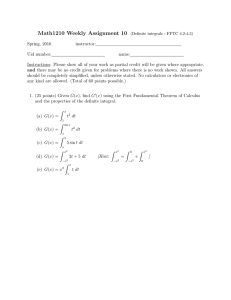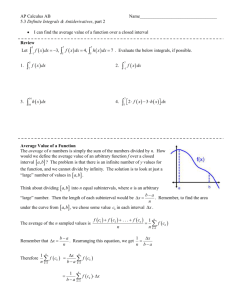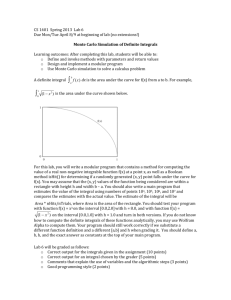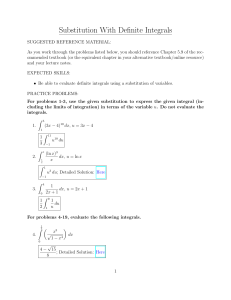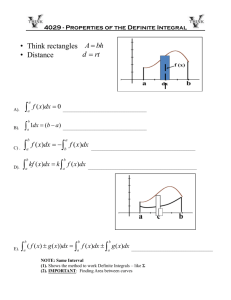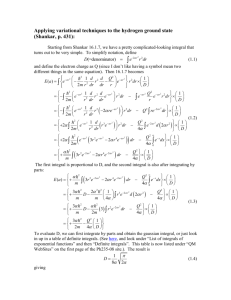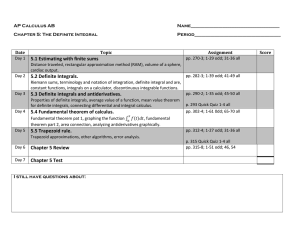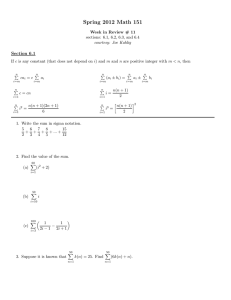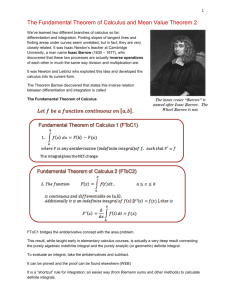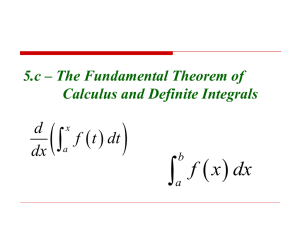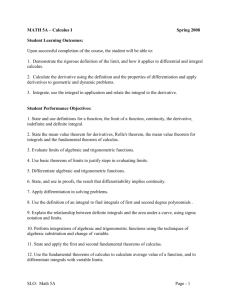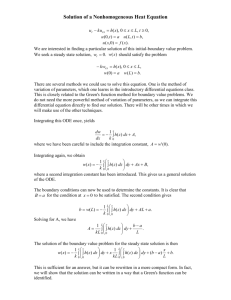Definite Integrals
advertisement
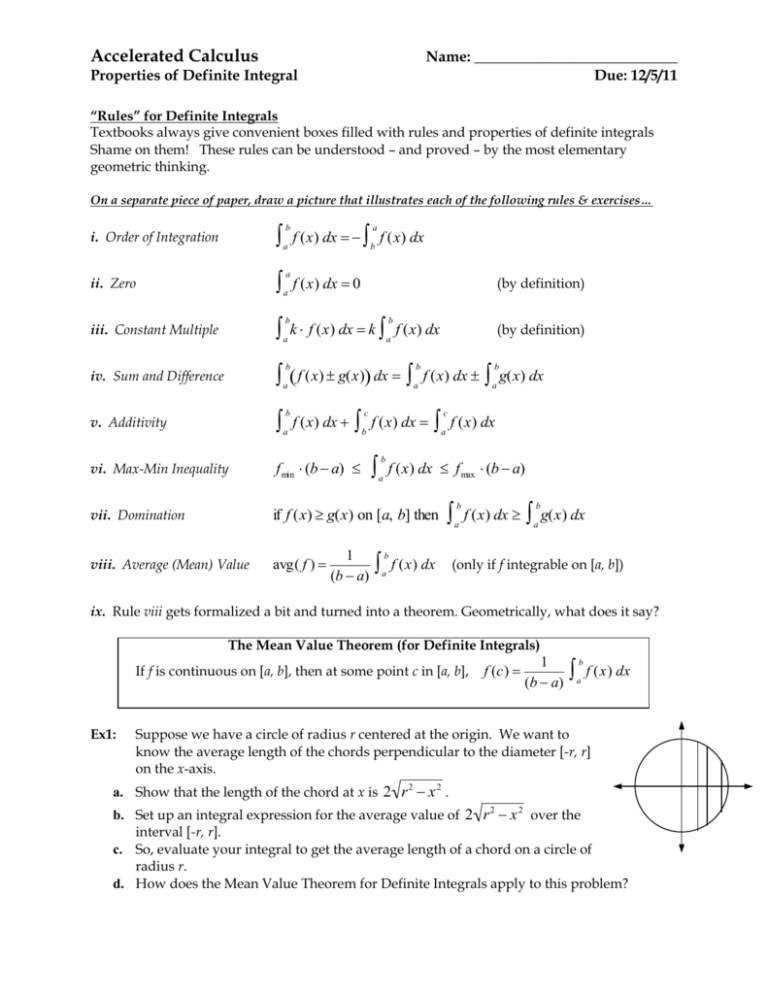
Accelerated Calculus Name: ___________________________ Due: 12/5/11 Properties of Definite Integral “Rules” for Definite Integrals Textbooks always give convenient boxes filled with rules and properties of definite integrals Shame on them! These rules can be understood – and proved – by the most elementary geometric thinking. On a separate piece of paper, draw a picture that illustrates each of the following rules & exercises… i. Order of Integration ii. Zero iii. Constant Multiple iv. Sum and Difference v. Additivity b a f (x) dx f (x) dx a b a a f (x) dx 0 (by definition) k f (x) dx k f (x) dx b b a a f (x) g(x) dx b b a a b a f (x) dx c b vi. Max-Min Inequality f min (b a) f (x) dx f (x) dx b a c a b a g(x) dx f (x) dx f (x) dx f max (b a) if f (x) g(x) on [a, b] then vii. Domination (by definition) b a f (x) dx b a g(x) dx viii. Average (Mean) Value avg( f ) 1 (b a) b a f (x) dx (only if f integrable on [a, b]) ix. Rule viii gets formalized a bit and turned into a theorem. Geometrically, what does it say? The Mean Value Theorem (for Definite Integrals) If f is continuous on [a, b], then at some point c in [a, b], Ex1: f (c) 1 (b a) b a f (x) dx Suppose we have a circle of radius r centered at the origin. We want to know the average length of the chords perpendicular to the diameter [-r, r] on the x-axis. a. Show that the length of the chord at x is 2 r 2 x 2 . b. Set up an integral expression for the average value of 2 r 2 x 2 over the interval [-r, r]. c. So, evaluate your integral to get the average length of a chord on a circle of radius r. Integrals apply to this problem? d. How does the Mean Value Theorem for Definite Ex2: Consider the following scenario: Questions: (let f (t ) represent the rate at which CO2 enters the water at time t) t 6 a. Given this context, briefly describe in words what f t dt tells us. t 0 b. At what time was the CO2 level lowest? highest? Briefly justify your answers. c. Estimate how much CO2 enters the pond during the night (from t 12 to t 24 ). d. Estimate the CO2 level at dusk (twelve hours after dawn). e. Does the CO2 level appear to be approximately in equilibrium? Briefly justify. Ex 3: Ex 4:
